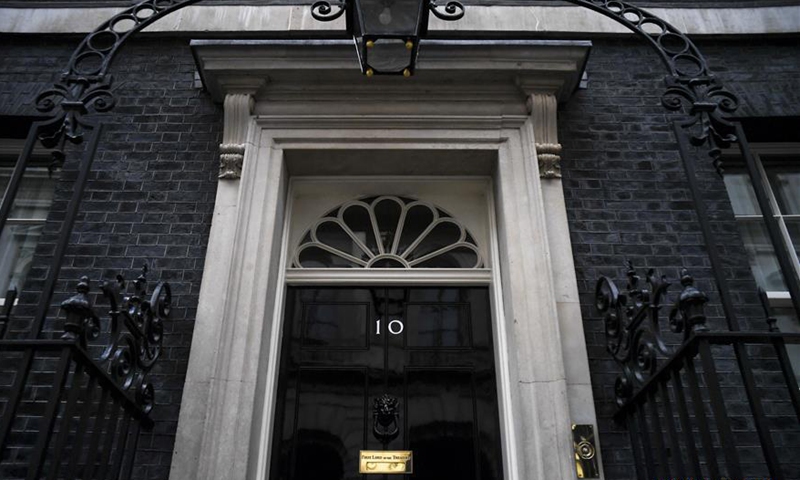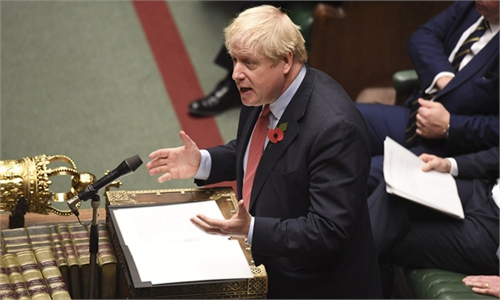UK vows to stand for values while hypocritically seeking economic benefit from China

Photo:Xinhua
The UK released its newest integrated review of foreign and defense policies. In the document, Britain says it "will continue to pursue a positive trade and investment relationship with China," while characterizing China as "the biggest state-based threat to the UK's economic security." British Foreign Secretary Dominic Raab said on the same day that Britain would like a positive relationship with China, but "we will never give up on standing up for our values."
This idea from the UK is representative of the West. The reality for Western countries is that they are not able to economically decouple from China. In truth, the two sides cannot change each other's systems. As a result, the West either competes or cooperates with China when it suits it. In other words, the West wants to reshape China while it continues benefiting from it.
The West believes its values are universal, but in fact these "values'' are just a disguised ideology. The reason the West emphasizes values but rarely talks about ideology is that Western politicians believe an ideological struggle exists between the two sides. But as to values, the West's are overwhelmingly mainstream.
Nonetheless, the West's move, which simultaneously underlines differences in values and trade with China, is a de facto reflection that China has developed well based on its own values, and that the West's emphasis on values is hypocritical.
In the early days of China's reform and opening-up, there were big differences between China and the West. Western politicians didn't talk much about the so-called values. But as the West was trying to maintain its leading position against China in spheres such as technology and rules-making, it began to realize that their old measures couldn't work. So they thought about new excuses to engage in suppression, which came later in the form of narratives about human rights and values.
The US-led Western camp is the biggest fan of such narratives. The problems between the US and China are nothing about values, but a struggle about strength and global leadership. The US knows this but doesn't admit to it, that's why it needs a banner - values - to unite its allies. The US or the UK doesn't really focus on the so-called values when they hype the word. As a matter of fact, the values of countries within the US-led camp are not even the same.
Emphasizing on values, Britain is imitating the US to pin labels on China, labels which read "non-democratic'' and "non-liberal.'' This has politically divided the world into two camps - China and non-China. In this game, the West has endowed itself with the moral high ground to veneer its core concern of securing hegemony. The West aims to portray an image: as China develops fast with its increasing international influence, it will bring disaster to the world because its values are not mainstream.
Nonetheless, many scholars and even ordinary people have rationally seen the success of China and now believe that not only a Western model can develop a country. However, at the governmental level, due to factors such as political correctness, such rational voices can rarely be heard. Especially as the struggle between the West and China has become fiercer. The room for rational voices will be further squeezed.
Politics is not about being right or wrong, but picking a side. This determines that even though China's approaches are advisable, badmouthing China is still politically right. This is why we oppose the West's moves to politicize China-related topics. Once a political choice is made, being objective and reasonable is hardly the case.
The author is director of the Department of European Studies, China Institute of International Studies. opinion@globaltimes.com.cn

